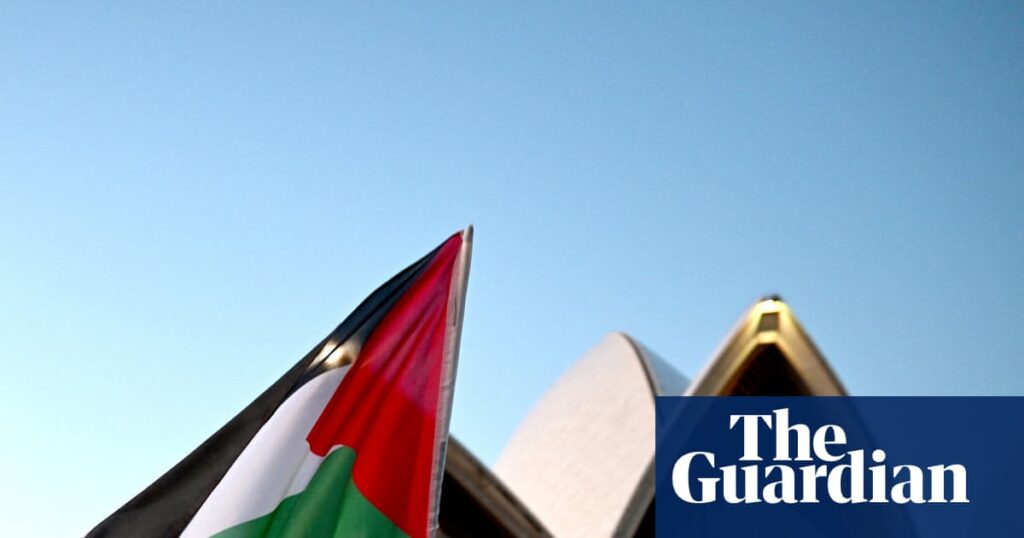The Palestine Action Group has lost its bid in the NSW court of appeal to march to the Sydney Opera House.
Last week, the group, alongside Jews Against Occupation, announced a plan to diverge from the normal route of its near weekly rallies over the past two years, and march from Hyde Park to the Sydney Opera House on 12 October to mark two years since the October 7 attacks and subsequent war, and call for “an end to genocide in Gaza”.
But on Friday, the NSW police announced it would knock back the group’s application to march to the Opera House, citing safety concerns such as a crowd crush over limited exit points from the forecourt.
Sign up: AU Breaking News email
The group fought the police’s decision in the court of appeal on Wednesday before the chief justice of NSW, Andrew Bell, Justice Ian Harrison, and Justice Stephen Free.
The court’s decision does not ban the protest, but it does mean if the organisers go ahead with the march demonstrators will not be provided immunity from being charged for certain actions – such as obstructing traffic – under the Summary Offences Act.
This forms part of the “form 1” protest system. Formerly known as a notification to hold a public assembly, the form, if accepted by police, protects those attending from being potentially charged under anti-protest laws.
When police refuse a form 1, such as in this instance, a court has the final say over whether the protest will go ahead with legal protections or not.
Just over two months ago, the Palestine Action Group faced the NSW supreme court in its bid to march over the Sydney Harbour Bridge. The protesters won, with an estimated 90,000 to 300,000 people attending.
Justice Free said the court of appeal bench was unanimous in its decision to prohibit the protest.
He cited several safety concerns, including the lack of sufficient exit points for an expected crowd of 40,000, and the route containing a number of “pinch points” which he said “would give rise to the risk of crowd crush as the route narrows, particularly as it approaches the Opera House forecourt”.
“A further complication would be the likely response of the Opera House Trust consistent with its protocol for mass events of conducting searches of those seeking access to the forecourt. This would be likely to cause significant delays in the progress of the crowd when it reaches the forecourt, and augment the risk of crowd crush,” he said.
“The mitigatory factors advanced by the organisers were not such as to reduce the risk to public safety to an acceptable level.
“The court further held that the risk to public safety associated with this public assembly was so significant that it would be irresponsible to allow the public assembly to proceed irrespective of the political significance of the event and the importance of freedom of political expression.”
More details soon …

